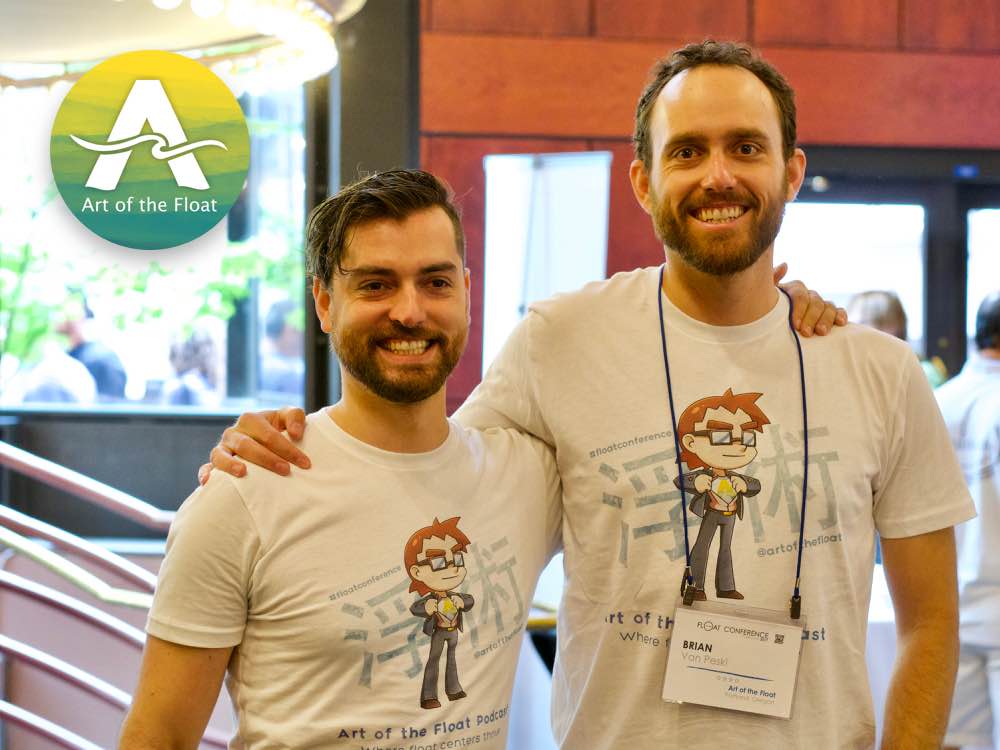Imagine sitting in a pitch-black room, totally silent, floating in a tank of water fortified with 1,000 pounds of epsom salt. Your mind slips into a state of relaxation you never thought possible, and that kink in your back seems to be working itself out on its own. It’s like doing a zero-gravity savasana after yoga class — for an hour.
Sound cool? You’re not alone. The scenario above is among the services offered by “float centers” around the world, which are getting more every year. In fact, a recent study estimated the global alternative medicine market to be worth a soaring $40.32 billion in 2015.
Float centers offer customers the opportunity to lie in state-of-the-art tanks and usually offer other wellness services like massage therapy, acupuncture, and yoga classes. The purported health benefits are numerous, and everyone from working moms to hippies to athletes swear by them.
But let’s say you want to open your own float center, or any other “extreme niche” kind of business. Who do you turn to for guidance? Where do you go for resources? While there’s no shortage of blogs about starting your own coffee shop, connecting with a community of people in esoteric entrepreneurial markets proves more difficult.
The Art of the Consultation
That’s where The Art of the Float comes in. The Art of the Float is niche. Really niche. It’s not a float center, but rather a consulting business that was born from two friends starting a blog about running a float center. Today they’ve expanded to produce an advertising-backed podcast and paid webinars; they also offer private consultation services — all for people who want to start float centers.
If that’s not a niche, then I don’t know what is. I caught up with Art of the Float Co-Founder Brian Van Peski to learn a few lessons about running a highly specialized business that caters to highly specialized entrepreneurs.

1) As Always, Know Thy Client
“Before starting a consulting business, do a deep dive into figuring out what your clients really want, because sometimes what you think your customers would naturally want isn’t actually what they do want,” Van Peski says. He tells me that one thing he and his partner learned early on was that people were oftentimes so focused on opening and running their float centers that they would neglect the crucial component of marketing their business.
“We started to put a lot more focus on marketing, and helping people understand how to utilize social media, how to make sure they’re building a brand that will build interest and get them into float tanks,” Van Peski says.
2) Diversify
He also warns against putting all your eggs in one basket. “We’ve been able to diversify our revenue stream across a couple different products and sources, and that helps keep us afloat,” Van Peski says, well aware of the punning potential of his business. In addition to paid webinars and consulting sessions, they also have an affiliate program for goods they sell on Amazon, so they get a cut when people purchase items they recommend on their website.
Furthermore, the Art of the Float has developed a podcast following robust enough to attract advertisers and monthly donations. Of course, “robust” is a relative term in niche-land: Van Peski estimates that about 1,000 people tune into each episode, but this number is large enough for folks in the float center industry to want to pay for an ad. This is one way that choosing a laser-focused business model can be beneficial — interested parties might be small in number, but they are more likely to make a transaction of some kind.
3) Use a Podcast as a Thermometer
Van Peski got into his current profession when his friend who owned a float center hired him as a small-business consultant. For two years afterwards, the blog (which is still up on The Art of the Float’s site) was really more of a hobby than anything else, but then something happened that kicked their consulting business into gear.
“We really took it out of hobby mode and into business mode once we started the podcast,” he says. “With the podcast, we brought on advertisers, we had planned guests and topics we would discuss. Through all of this, we’d find out what people were most interested in and that’s when we started doing paid webinars for how to market your float center, how to build a successful brand, what scheduling software you should use, and things like that.”
























































































































































